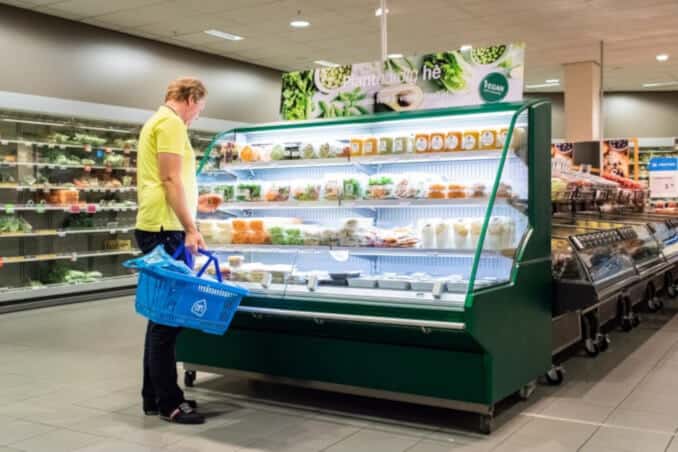Sales of animal meat in Dutch supermarkets have fallen by 16.4% since 2020, concludes animal welfare organisation Wakker Dier, based on Circana sales data. In 2023, these supermarkets sold 2.3% less meat than in 2022. The organisation attributes this largely to improvements in price points.
Wakker Dier notes that retail nudging via low prices, shelf layout, and promotional policies have been influential in this change, with many of the mainstream supermarkets committing to transitioning towards less animal-based protein and more plant-based.
Some examples of the above trends in the Netherlands include:
- Supermarket chain Jumbo decided to cease the promotion of fresh animal meat from the end of May this year.
- Albert Heijn, the leading chain in the Netherlands, recently launched AH Terra, an own-brand plant-based range comprising 200 products, including 58 NPDs, which it describes as the largest and most diverse selection of plant-based options available in the country.
- Jumbo recently announced a committed goal to ensure that 60% of its protein offerings are sourced from plants by 2030.
- Many plant-based products are now more affordable than their animal counterparts in six supermarkets out of the seven major Dutch retailers, according to research by think tank Questionmark on behalf of ProVeg International.
- ALDI rolled out its plant-based My Vay brand, featuring a wide range of plant-based dairy alternatives, with future expansions set to include a variety of plant-based meats and cheeses.
The data mirrors that of a 2023 study by Statistics Netherlands (CBS) which found that Dutch retailers experienced declining sales of animal meat products for nine consecutive quarters, with a 13% drop compared to the first quarter of 2019.

Meat prices fluctuating
Wakker Dier analysed sales figures in the period 2020-2023 for fresh animal meat and meat products from all Dutch supermarkets except Aldi, Boni, and Lidl. According to the data, fluctuations in price have likely also contributed to falling meat sales. For example, the war in Ukraine led to an increase in prices of animal feed and the price of meat rose faster than that of other food products.
One caveat to be noted is that sales figures for ready meals and tapas were not included in the analysis; as such, a partial shift in meat consumption via these products cannot be ruled out.
“Many consumers are already eating less meat and most supermarkets are also now betting on more plant-based products. That adds up nicely by now,” says Collin Molenaar of Wakker Dier. “Eating less meat now is not only better for the animals, the climate and your health, but also for your wallet.”
For more information on Wakker Dier, visit wakkerdier.nl




